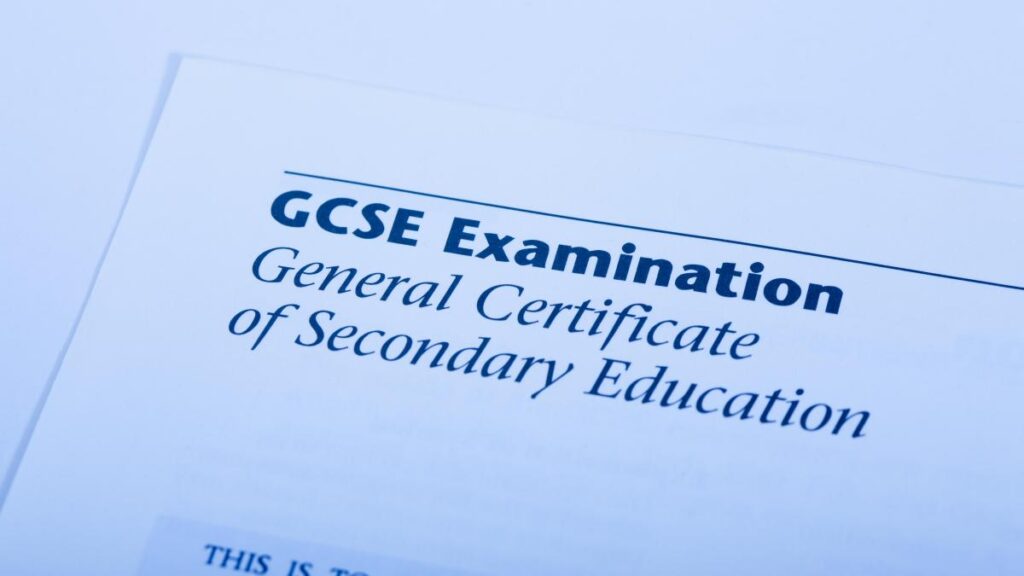What GCSEs are required to become a lawyer? is addressed in this article.’ and explains the required higher education to pursue a career in law.
Most further education courses, whether at school, sixth form, college, or university, will expect you to have GCSEs in English Language, Maths, and Science, so it’s likely that your school will make these three subjects compulsory.
How significant are GCSEs in reality, then? And which subjects will best position you to advance in your quest to become a lawyer? The short answer to this query is that you must have a minimum of 5 GCSEs, including passes in English, Math, and Science, in order to become a lawyer.
The best GCSE options to select if you want to study law are revealed in the following paragraphs.
What GCSEs Do You Need for Law?
“What GCSEs are required to become a lawyer?” may be a question you have at the beginning of your career.’. Although your GCSEs aren’t the most pertinent credentials for becoming a lawyer, they are unquestionably crucial to obtaining the necessary higher education credentials.
To study law at A-level, you typically need a minimum of 5 GCSEs, including level 4 or C grades in math, English, and science. In addition to relevant A-levels, many universities also have entry requirements that include a specific number of GCSEs at grades A*-C.
The GCSEs you select to take may not be as relevant when you apply for lawyer positions, but they can help you get ready for further legal studies by teaching you critical analysis, report writing, and presentation skills.

Some of the most beneficial GCSEs to consider include:
- English Language
- Maths
- Science
- History
- English Literature
- Geography
- A modern foreign language, such as French or Spanish
How Many GCSEs Do You Need for Law?
Along with considering which GCSEs you’ll need to study law, you should consider how many. A chance to continue studying law typically requires a minimum of five GCSEs.
You can look up the entry standards for the sixth form and local colleges to get a better idea of what you should be aiming for in order to move on to the next phase of your education.
Your school might determine that you are capable of earning more than five GCSEs. This information will be provided to you when it is time to select your GCSE options.
What A-levels Do You Need to Study Law at University?
A-level credentials are required after you have finished your GCSE coursework in order to pursue a law degree at a university. Depending on the university, specific entry requirements for law degrees can vary, but they typically include three A-levels at AAA-BBB grades.
A law degree, which equips students with a career in the legal field, is the most crucial qualification to acquire if you’re interested in becoming a lawyer. If you plan to study law at university, some A-level subjects to consider include:
- Law: Although it’s not a requirement to study law at university, earning an A-level in the subject gives you a solid foundation on which to build your legal knowledge. Even though some people view a law A level as more of a soft than an academic subject, it can be a great subject to help students decide if they want to continue studying it.
- History: The extensive essay writing required for a law degree is something that students who study history at the A-level are prepared for. History also teaches you to think critically and construct logical arguments, which are important skills for law students to have.

- English language or literature: Another subject that emphasizes essays is English, which enables students to improve their essay-writing abilities. Students’ communication skills, which are crucial for those wishing to become lawyers, are improved by studying English at the A-level.
- A modern foreign language: Students have options to keep their choice of university major open by taking a foreign language at the A-level level. Later on in their careers, it can also be a useful tool for attorneys, particularly if they intend to work for a multinational law firm or internationally.
- Maths: While math doesn’t help law students develop the writing skills they need, it does develop their analytical abilities and promote logical thought. Teams reviewing applications to universities give math a favorable review because it is a highly respected academic subject.
- Science: In a manner similar to math, science courses don’t teach writing skills but do train students to think critically. Law students benefit from having the problem-solving skills that come with science A-levels.
- Geography: Geography is another subject that encourages students to consider all of their options, and admissions committees favor it because it is a humanities subject. Another subject that lets students practice their essay-writing abilities is this one.
Does the School at Which You Get Your GCSE Qualifications Matter to Universities?
Very simply, the answer to this question is no. Due to the competitive nature of law, you may have some concerns about the school where you are earning your credentials. However, you must keep in mind that a GCSE grade of 9 is the same regardless of the school.
The school where you earned your GCSEs doesn’t matter to Universities when they are deciding whether to admit you to their law degree programs because GCSEs are evaluated on a national level.
So, ultimately, the important thing is that you achieve the highest grades that you can by working hard, as this is how you will be compared to other candidates, rather than by which school you studied at.

Can You Become a Lawyer Without Particular GCSEs?
The field of law is extremely competitive and will demand a lot of work, so keep that in mind if you want to pursue it. The simplest way to show your commitment to a subject and your personal qualities, such as drive and work ethic, is through your grades.
As a result, even if they only help you enroll in the appropriate A-Level and university courses, GCSEs will still be important for your career.
As I have said all the way through this article, you will need at least 5 GCSE pass grades including in English Language, Maths, and Science in order to progress onto a law school course. You may find it challenging to pursue a legal career through the university route without these.
There is no subject that you will specifically need in order to advance into the field of law, though, if you are worried about what options you should be selecting at GCSE. The only thing that you should be considering at GCSE is taking subjects that will allow you to continue onto the preferable A-Level courses for Law.
It is crucial that you research the sixth forms in your area even after taking this into account because there are differences in the entry requirements for different sixth forms.
It’s important to keep in mind that taking courses in history, geography, or modern foreign languages could help you better understand the corresponding A-Levels, but they are not required, and not choosing them won’t prevent you from becoming a lawyer.
It is, however, perhaps important to consider the fact that Law can be a very academically challenging subject, and therefore you are likely to be a little bit better off if you choose academic subjects at GCSE.

Thus, even though you might enjoy your music classes at school, taking music for GCSE may not be the best option for you because it is less academic and more creative, which means that it won’t directly affect the skills you will need for law.
This is not to say, though, that you shouldn’t keep up your interest in music as a pastime outside of the classroom!
What Are GCSEs?
At the conclusion of your compulsory education, you will take the GCSE exams. The final exams are being prepared for by students in grades 9, 10, and 11. You already know that, depending on the subject, you must demonstrate all of your hard work through a combination of exams and coursework.
GCSEs are regarded as a uniform and equitable way to demonstrate your academic potential because they are accepted by almost every school, college, and university in the UK. As it is the only accurate way to assign a grade based solely on your exam performance, your GCSE exams will be graded by outsiders.
You’ve probably heard at least one adult tell you that the road to becoming a licensed lawyer is a long one when it comes to what GCSEs you need for law.
Even though this is true and appearing in court may be years away, carefully considering what GCSEs you need for law is an essential first step in your legal studies.
Conclusion: Get Good GCSEs
You must pass five GCSEs, including English Language, Math, and Science, in order to become a lawyer.
Ideally, you should always try to achieve the best that you can, so even though there are minimum requirements, it’s crucial to make sure you can work as hard as you can so that you perform to the best of your ability in your exams.
Although the path to becoming a lawyer can be academically demanding, it’s a career in law that can be very rewarding and is a stable and well-paid position.
